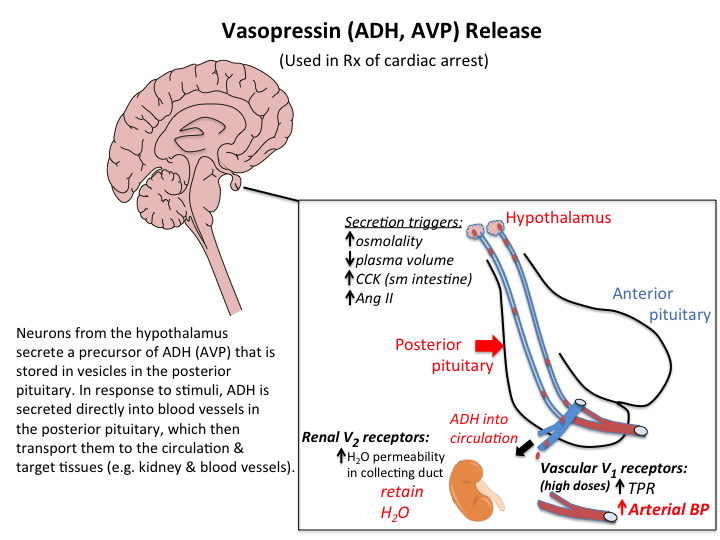
noun
- Biochemistry. a peptide hormone, synthesized in the hypothalamus and released by the posterior pituitary gland, that stimulates capillary muscles and reduces the flow of urine and increases its concentration.
- Pharmacology. a synthetic preparation of this hormone, used as an antidiuretic in the treatment of diabetes insipidus.
noun
- a polypeptide hormone secreted by the posterior lobe of the pituitary gland. It increases the reabsorption of water by the kidney tubules and increases blood pressure by constricting the arteriesAlso called: antidiuretic hormone Chemical name: beta-hypophamine Compare oxytocin
1928, from vasopressor, from vaso-, comb. form of Latin vas “container, vessel” (see vas).
n.
- A hormone, related to oxytocin, that is secreted by the posterior lobe of the pituitary gland, constricts blood vessels, raises blood pressure, stimulates intestinal motility, and reduces the excretion of urine.antidiuretic hormone
- See antidiuretic hormone.
 Liberal Dictionary English Dictionary
Liberal Dictionary English Dictionary